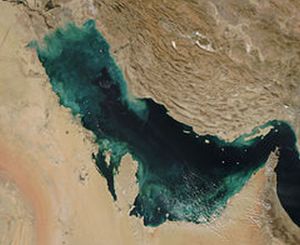“Here they can live free lives, and no one will threaten to expose them to non-Edward-Saidian thought.”
 Doha, Qatar, September 9 – Amid growing attention to oil-rich countries around the Persian Gulf not absorbing any of the millions of people fleeing violent conflict in the Muslim world, several of those countries announced today that they would soon open their gates to refugees from North American universities whose world view has been threatened by viewpoints that conflict with their own.
Doha, Qatar, September 9 – Amid growing attention to oil-rich countries around the Persian Gulf not absorbing any of the millions of people fleeing violent conflict in the Muslim world, several of those countries announced today that they would soon open their gates to refugees from North American universities whose world view has been threatened by viewpoints that conflict with their own.
Qatar, Bahrain, Oman, and the United Arab Emirates issued a joint statement to publicize the plan, under which up to 700 faculty and students would be admitted to those countries over the next eight months. Eligibility for the program would be reserved for refugees who could prove their anti-Western, anti-Israel views were being assaulted regularly by other people expressing opinions and analysis that conflict with theirs.
“The unjust criticism many have voiced against our governments for keeping our doors closed while so many people endure suffering and rootlessness can now be silenced,” said Prince Aibeen Ajerq of Qatar. “Together, several of our Gulf allies have devised a plan that will make it easier for those made to feel unwelcome in the American academic system to resettle within the open, welcoming borders of our countries.”
“Here those beleaguered academic refugees will finally be able to let go of the constant worry that someone will challenge their post-colonialist positions,” continued Ajerq. “Here they can live free lives, and no one will threaten to expose them to non-Edward-Saidian thought.”
Already, the diplomatic offices of Qatar and Bahrain in the US have been deluged with inquiries from post-secondary teachers and students seeking asylum from articles, books, news reports, and other media that see Israel as legitimate and the US as playing a constructive role in world affairs. Oman’s embassy e-mail server crashed, highlighting what observers see as the first in many anticipated obstacles in bringing such an ambitious rescue plan to fruition.
“There are bound to be planning failures and logistical challenges,” noted analyst Stephen Salaita. “But the spirit of this operation is encouraging. The Gulf states are finally picking up the ball after having all but ignored the plight of this oppressed population, and they should be praised for upholding the rights of that group. While we will certainly see these refugees encounter significant difficulty on their way to safety, overall I believe we can expect them to resettle comfortably in their new homes.” Salaita explained that the difficulties to be expected along the refugees’ journey include lapses in Wi-Fi access, exposure to news sources not biased against the West and Israel, and motion sickness.
Academic refugee leaders called the program a lifeline, but said it is still too early to judge its merits. “We still have to see whether all the little Eichmanns in Washington and New York will let it proceed,” said Professor Ward Churchill.




